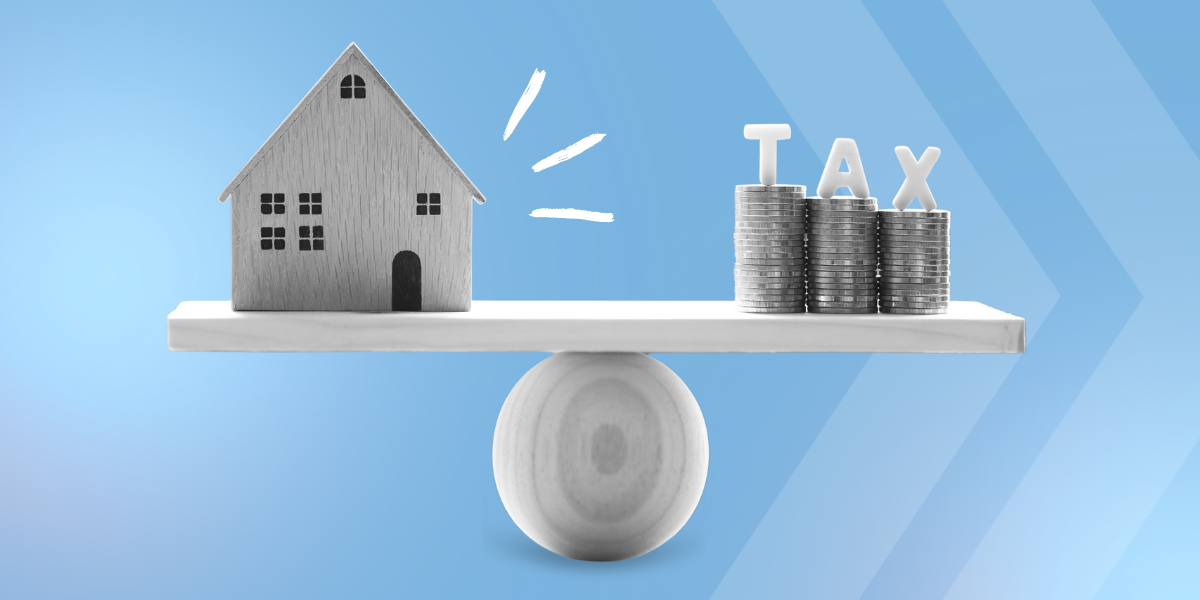Discover how the 2024 elections could impact the real estate market. Learn about trends in home sales, mortgage rates, and home prices, with expert insights for buyers and sellers navigating the election year’s unique challenges.

As we approach the 2024 U.S. elections, both prospective homebuyers and sellers are navigating a real estate landscape shaped by economic uncertainty and political anticipation. In any election year, shifts in consumer behavior and investor sentiment are expected, but this year brings additional complexities. With high mortgage rates, rising inflation, and a fluctuating economy, the stakes are even higher for those considering a real estate move. The outcomes of this election could influence everything from mortgage rates to home prices, impacting affordability and market stability.
Understanding how the election might impact real estate is crucial for those looking to buy or sell in this dynamic environment. Many are questioning if they should wait for post-election clarity or act now to avoid potential changes in policy that could affect taxes, interest rates, and broader economic conditions. Historical data reveals trends, such as pre-election slowdowns and post-election rebounds, but each election cycle brings its own unique economic factors, making it essential to look at what sets 2024 apart.
In this article, we explore four critical questions about how the 2024 election may shape the real estate market. From the effects on housing inventory and mortgage rates to potential shifts in home prices, we offer expert insights and historical data to help buyers, sellers, and investors make informed decisions during this pivotal year. Whether you’re planning to purchase your first home, sell a property, or simply stay informed, understanding these trends can provide a valuable roadmap for navigating the uncertain months ahead.
1. Does an Election Slow Down the Real Estate Market?
Historical Patterns and 2024 Projections
The uncertainty surrounding elections tends to make homebuyers and sellers cautious. Historically, home sales drop by about 9.8% from October to November in a typical year. However, in an election year, this decline is more pronounced, with sales dropping an average of 15% during the same period. This year, the impact seems to be even stronger, with 23% of first-time homebuyers indicating that they are waiting until after the election to make a purchase.
This behavior is largely influenced by the desire for stability. Buyers and sellers often delay their decisions in the months leading up to an election, preferring to wait until the political landscape becomes clearer. This year, a turbulent economic environment has only amplified that uncertainty. For those on the fence, economic and policy shifts could potentially affect job security, mortgage rates, and even property taxes—all factors that weigh heavily on homebuying decisions.
Why Does Uncertainty Lead to a Slowdown?
During an election year, potential buyers and sellers may fear that policy changes could alter the economic landscape. Buyers may wonder if new leadership will introduce changes to tax laws or mortgage regulations, potentially impacting their finances. Sellers, on the other hand, might delay listing their properties until they are more confident in future home price trends.
This psychological effect is sometimes called the “election-year freeze.” Consumers often hold back on big financial commitments when the outcome of an election could shift major policy directions. But as history shows, this is typically a temporary effect.
Ready to move forward with confidence? Whether buying or selling, Connect with an Xcellence Agent today to make the most informed decisions in this uncertain market.
2. Do More Homes Sell After an Election?
The Post-Election Rebound Phenomenon
Despite the slowdown leading up to the election, the months following an election tend to bring a surge in home sales. Historically, sales have increased in the year following an election 82% of the time. This year, experts forecast a similar pattern, predicting that home sales will rise from 4.6 million in 2024 to 5.2 million in 2025. This suggests that while buyers and sellers may delay transactions until after the election, demand typically returns, often stronger than before.
This rebound effect can be attributed to a sense of stability and direction. Once election results are finalized, buyers and sellers generally feel more comfortable making decisions, as they have a better understanding of the policies and economic direction the new administration will likely pursue. Real estate professionals often see this as a return to normalcy after a period of “wait and see.”
How Does Post-Election Market Confidence Influence Real Estate?
When election results are in and policies start to take shape, market confidence tends to improve. The election often represents the resolution of uncertainty, allowing buyers and sellers to make decisions based on concrete information. This confidence can also be influenced by expected economic policies, such as potential tax cuts or incentives for first-time homebuyers, which can further drive demand.
Historically, administrations may implement policies that impact the housing market in their first year, as they seek to stabilize or stimulate the economy. Buyers, sensing more stability, are likely to act on their delayed purchasing decisions. In addition, sellers may feel more assured about listing their homes when they can better anticipate economic conditions.
Interested in starting your real estate journey? Visit Xcellence.com and explore your options for buying or selling in 2024.
3. What Happens to Mortgage Rates During an Election Year?
Mortgage Rate Volatility and Election Years
Mortgage rates play a crucial role in the housing market, and they tend to fluctuate significantly in election years. From July to November during election years, mortgage rates have decreased 72% of the time. This trend reflects the broader uncertainty in financial markets as investors respond to potential changes in economic policies.
This year, however, has been marked by unusual volatility. In September 2024, mortgage rates fell to an average of 6.08%, despite reaching nearly 8% in the previous fall. The decline indicates that, even amid a challenging economic environment, the market may anticipate some easing after the election. In some election years, this volatility can be tied to investor sentiment and the anticipation of fiscal policies that could impact inflation, interest rates, and economic growth.
Why Do Election Cycles Affect Mortgage Rates?
Mortgage rates are influenced by bond markets, investor behavior, and Federal Reserve policies. In election years, investor sentiment can be especially sensitive, as market participants speculate about how a new administration might influence fiscal and monetary policy. For instance, if investors believe a candidate will implement pro-growth policies, they may invest more heavily in equities, leading to changes in bond yields and mortgage rates.
In recent years, the Federal Reserve has been closely watched in its efforts to control inflation. High inflation rates have pushed the Fed to raise interest rates, which indirectly affects mortgage rates. The upcoming election could impact Fed policy, depending on the administration’s approach to economic growth and inflation control. Many buyers and sellers are closely watching these trends, hoping that mortgage rates will stabilize or decrease post-election.
Want to dive deeper into mortgage trends? Read the following article: Mortgage Mastery – Unveiling Mortgage Rates: What Is a Mortgage Rate, & Why Is It Essential for Homebuyers’ Success?
4. What Happens to Home Prices After an Election?
Home Price Trends in Post-Election Years
One of the most reassuring trends in real estate is that home prices have historically increased in the year following an election 88% of the time. This pattern holds regardless of the party in office, suggesting that the housing market is resilient to political shifts. Experts forecast that this year will be no different, with national home prices projected to continue rising, with a 2.5% increase anticipated for 2025.
The continued price appreciation is a reflection of sustained demand in the market. Even in times of political change, factors like limited housing supply and rising construction costs often keep prices stable or even push them upward. Additionally, long-term factors, such as population growth and urban development, drive housing demand, creating upward pressure on prices.
What Drives Home Price Growth Post-Election?
Post-election price increases are often driven by pent-up demand. Buyers who postponed their purchases due to election uncertainty typically enter the market in the months following, leading to increased competition for homes. Additionally, if the new administration introduces policies aimed at promoting homeownership—such as tax breaks for first-time buyers or funding for affordable housing—demand can increase further, pushing prices up.
Housing supply, or the lack thereof, also plays a critical role. In many U.S. cities, supply constraints continue to drive prices higher. Even a slight uptick in demand post-election can have a significant effect on prices if the housing supply remains tight. This trend is expected to persist into 2025, contributing to the projected national price increase.
Final Thoughts
Elections may bring temporary dips in sales and slight changes in mortgage rates, but the overall trend is one of resilience and recovery. The 2024 election appears to be following this same pattern, with first-time homebuyers delaying purchases until after the results and experts anticipating a rebound in sales and steady price growth in 2025. Whether you’re a buyer, seller, or simply watching the market, understanding these election-year patterns can provide valuable insights for making informed decisions in an uncertain market.



